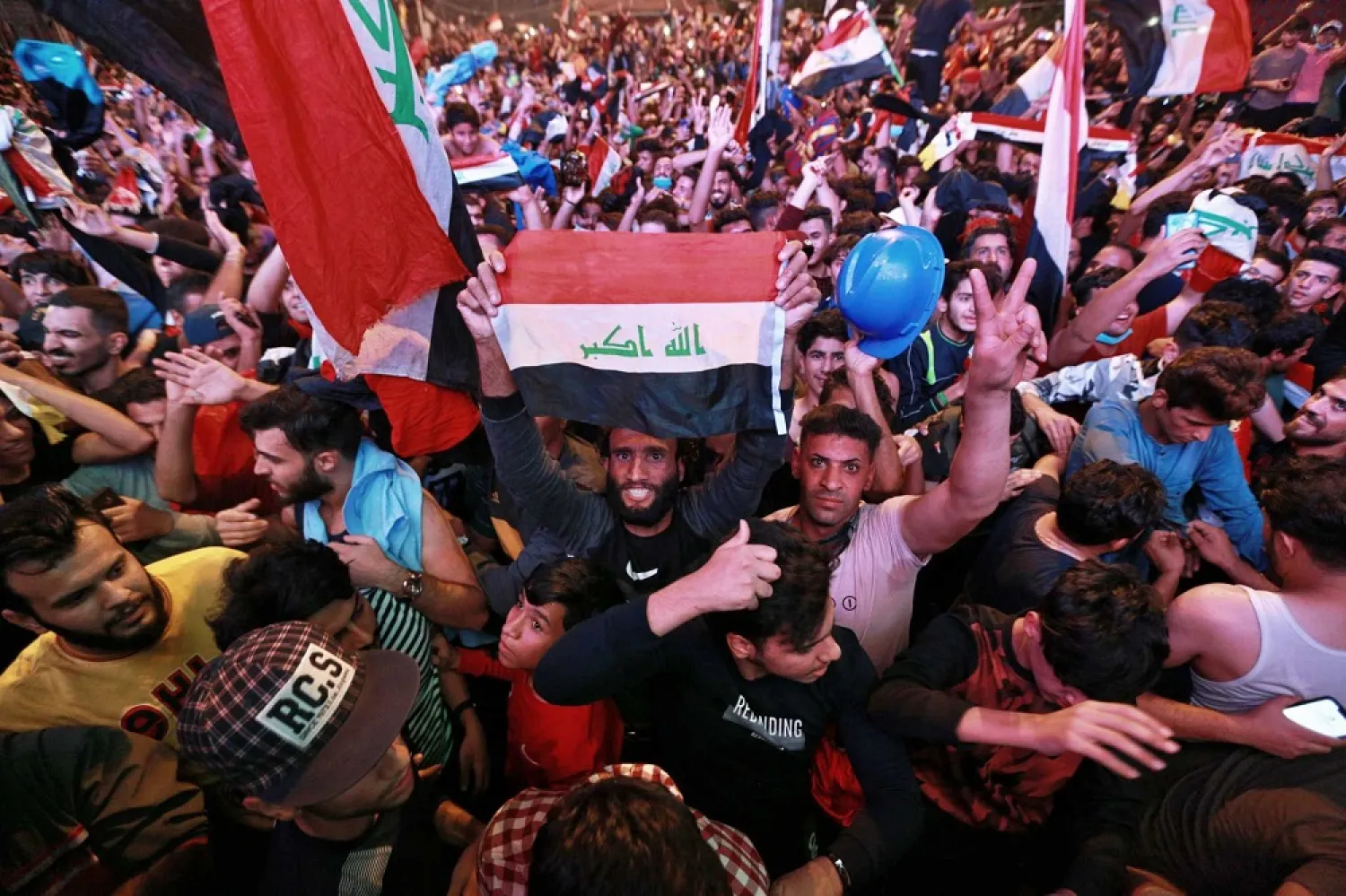An overnight celebration of a football victory offered only brief respite to Iraq’s violence, as anti-government protesters returned to the streets and security forces fired on them with live ammunition, killing at least three and wounding dozens.
Six weeks of fury on the streets had turned to joy overnight after the 2-1 victory over Iran - the neighbor Iraq’s demonstrators blame for supporting the government they want to sweep from power. Celebratory gunfire and the explosions of fireworks rang out until the early morning.
But by dawn the euphoria had evaporated and protesters and police were again clashing in running battles through the streets, resuming the violence that has killed more than 300 people over the past six weeks.
Security forces fired live bullets at protesters in Baghdad’s Khillani Square on Friday as they sought to push them back to the main camp at Tahrir Square, part of a government tactic to confine the unrest.
Smoke rose as young men with covered faces rushed to take their wounded comrades to nearby medics. One wrapped around himself the bloodstained Iraqi flag worn previously by another.
“We are peaceful, we only have flags while they have everything; tear gas and live bullets. But we will never go back,” said Yassin Salman, according to Reuters.
Eruption
The mass protests, which began in Baghdad on October 1 and spread through southern Iraq, are an eruption of public anger against a ruling elite seen as enriching itself off the state and serving foreign powers — above all Iran — as many Iraqis languish in poverty without jobs, healthcare or education.
The government’s response to the unrest - with live ammunition, tear gas and stun grenades against mostly unarmed demonstrators - has failed to intimidate the crowds, which have scorned offers of limited political reforms.
Huge crowds chanting “Iran out!” had gathered ahead of Thursday night’s football match, to watch on giant screens set up by the authorities. When it ended in a victory over Iran, they erupted in celebration, with protesters chanting with joy alongside the police.
Fireworks went off in the main protest camp at Baghdad’s central Tahrir Square, and exploded over the capital for hours.
Iraq’s national team, with stars from across its sectarian and ethnic divides, has rallied the nation at other difficult moments.
“The national football team is the only thing that will let us be happy and unify the Iraqi people,” Amir Ali, draped in an Iraqi flag, said amid the celebrations.
But the return of violence on Friday swiftly dispelled the euphoria.
Iraq’s top Shiite cleric, who intervenes in politics only at times of crisis, openly backed the protests in his Friday sermon and said he doubted the elites would deliver reform.
“If those who wield power think they can escape enacting real reforms by stalling, they are delusional. What comes after these protests will not be like what followed earlier ones, so they better pay attention,” Grand Ayatollah Ali al-Sistani said in a sermon read out by his representative.









